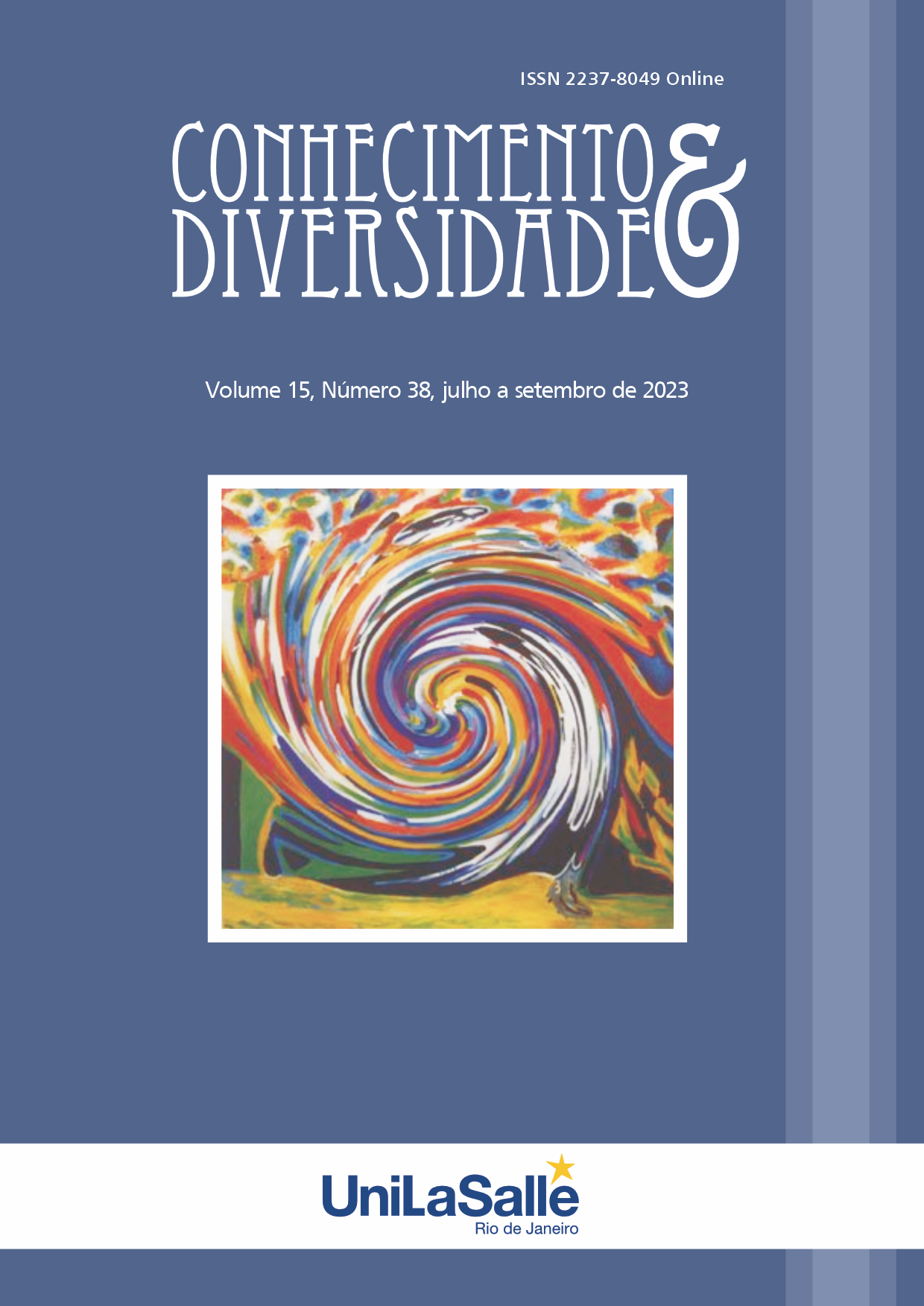MANIPULATIVE TACTICS IN MODERN ENGLISH-LANGUAGE MEDIA DISCOURSE
LINGUISTIC, PRAGMATIC AND EDUCATIONAL APPROACH
DOI:
https://doi.org/10.18316/rcd.v15i38.11077Palabras clave:
Media discourse. , Media communications, Media text, Linguistic pragmatic approach, Linguistic and cultural approach, Educational approach, Lexical means, Linguistic means, Manipulation Technologies, SemanticsResumen
The relevance of the chosen research topic is dictated by the need to describe manipulative tactics in modern English-language media discourse, taking into account both the cognitive mechanisms involved in it, which represent the basis of mental activity, and the communicative aspects of influencing a wide audience. It is shown that manipulation implies the choice and use of linguistic means that allow having a hidden effect on the addressee. Manipulative influence is considered as a leading discursive practice, which is a complex of strategic and tactical components aimed at shaping public opinion within the media space.
Citas
Atamali, Z. (2021). Manipulation in British political discourse. Scientific notes of TNU named after V. I. Vernadskyi. Series: Philology. Journalism, 32(71), 102-106.
Bounchnak, L. (2015). Discursive strategies of manipulation. LAP LAMBERT Academic Publishing.
Chester, J., & Montgomery, K. (2017). The role of digital marketing in political campaigns. Internet Policy Review 6(4). https://policyreview.info/articles/analysis/role-digital-marketing-political-campaigns.
Couglan, S. (2017, November 15). Six universities told to change advertising claims. BBC News. https://www.bbc.com/news/education-41984465
Cull, J. (2013). Living systems: An introductory guide to the theories of Humberto Maturana & Francisco Varela. CreateSpace Independent Publishing Platform.
Crain, M., & Nadler, A. (2019). Political manipulation and Internet advertising infrastructure. Journal of Information Policy, 9, 370-410.
Giusti, S. (2020). Democracy and fake news: Information manipulation and post-truth politics. Routledge.
Huff, M., & Higdon, H. (2019). United States of Distraction: Media manipulation in post-truth America. City Lights Publishers.
Kuzio, A. (2014). Exploitation of schemata in persuasive and manipulative discourse in English, Polish and Russian. Cambridge Scholars Publishing.
Kuzmenko, O., Kyryliuk, O., Bublyk, T., Boyko, Y., Ruban, V. (2023). Linguistic dimension of political advertising: Analysis of linguistic means of manipulative influence. World Journal of English Language, 13(1), 205-211.
Llopis, M., Breeze, R., & Gotti, M. (Eds.). (2017). Power, persuasion and manipulation in specialised genres: Providing keys to the rhetoric of professional communities (Linguistic insights). Peter Lang AG.
Matz, S., Kosinski, M., Nave, G., Stillwell, D. (2017). Psychological targeting as an effective approach to digital mass persuasion. Proceedings of the National Academy of Sciences, 114(48), 12714–12719.
Maturana, H., & Varela, F. (1992). The tree of knowledge: The biological roots of human understanding. Shambhala.
Mialkovska, L., Zhvania, L., Rozhylo, M., ... Yablonskyy, M., Hrysiuk, V. (2023). Digital tools in teaching the mass media language. World Journal of English Language, 13(4), 43-48. DOI: https://doi.org/10.5430/wjel.v13n4p43
Mintz, A. (Ed.). (2012). Web of deceit: Misinformation and manipulation in the age of social media. CyberAge Books.
Saul, J. (2023). Dogwhistles and figleaves: How manipulative language spreads racism and falsehood. Oxford University Press.
Siuta, H., Mialkovska, L., Ivanenko, I., Syrko, I., Senkovych, O., Sobol, L. (2021). Precedent names in the language of modern Ukrainian journalism. Ad Alta: Journal of Interdisciplinary Research, 11/02-XXII, 91-95. http://www.magnanimitas.cz/ADALTA/110222/papers/A_16.pdf
Van Dijk, T. (1996). Discourse, Opinions and Ideologies. In: C. Schäffner and H. Kelly- Holmes (eds) Discourse and Ideologies, pp. 7-37. Clevedon: Multilingual Matters.
Van Dyk, S. (2022). Post-truth, the future of democracy and the public sphere. Theory, Culture & Society, 39(4), 37-50.
Woolley, S., & Howard, P. (Eds.). (2018). Computational propaganda: Political parties, politicians, and political manipulation on social media. Oxford University Press.
Zienkowski, J., Östman, J., & Verschueren, J. (Eds.). (2011). Discursive pragmatics. Philadelphia.
Descargas
Publicado
Número
Sección
Licencia
Derechos de autor 2023 Liudmyla Mialkovska, Anzhelika Yanovets , Vita Sternichuk, Tamara Nykoliuk, Kateryna Honchar, Oksana Khnykina

Esta obra está bajo una licencia internacional Creative Commons Atribución 4.0.
Tal como recomienda el Public Knowledge Project, RCD adopta para sus artículos una licencia CREATIVE COMMONS: Attribution CC BY 4.0
Esta licencia permite que otros distribuyan, remezclen, adapten y desarrollen su obra, incluso con fines comerciales, siempre que le atribuyan a usted el mérito de la creación original.
Esta es la licencia más adecuada que se ofrece.
Recomendado para la máxima difusión y utilización de los materiales bajo licencia.



